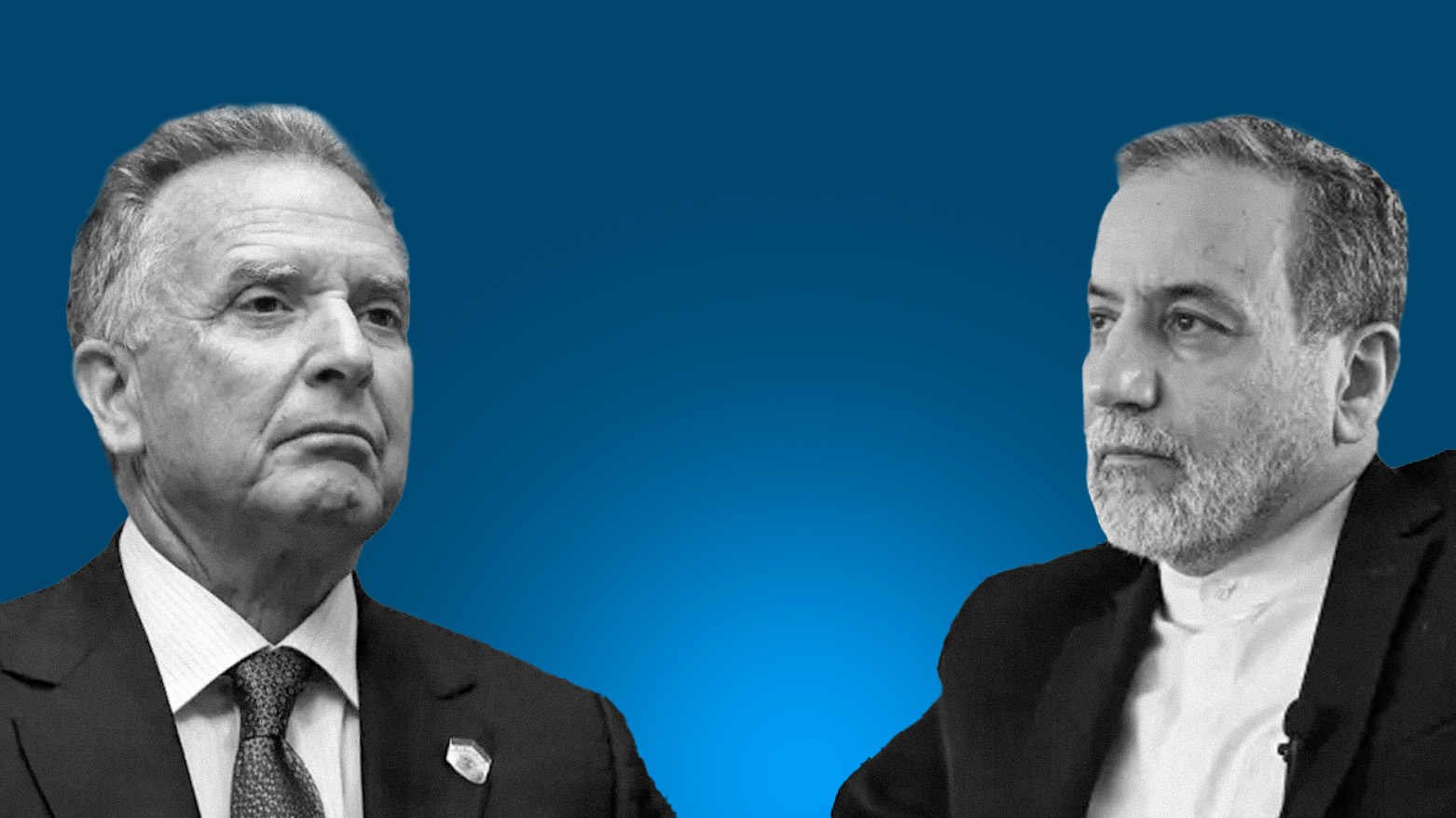Iran and U.S. to Resume Nuclear Talks After Constructive Muscat Meeting
Top negotiators Abbas Araqchi (Iran) and Steve Witkoff (U.S. Middle East Envoy) exchanged views through Omani channels for over two hours, with a brief in-person interaction as they left the venue, according to IRNA.

ERBIL (Kurdistan24) – Iran and the United States have agreed to resume negotiations next week after holding a rare round of preliminary talks in Muscat, the capital of Oman, signaling a potential thaw in years of diplomatic silence between the two nations.
According to Iran’s Foreign Ministry, the talks were conducted in a “constructive atmosphere and based on mutual respect,” focusing on the Iranian nuclear program and the lifting of U.S. sanctions on Tehran. The discussions were facilitated by Oman’s Foreign Minister Badr bin Hamad Albusaidi, underscoring Muscat’s continued role as a trusted mediator in regional diplomacy.
According to a statement by Iran’s Foreign Ministry, covered by the state-owned Islamic Republic News Agency (IRNA), during Saturday’s meeting, top negotiators—Iran's Foreign Minister Abbas Araqchi and Steve Witkoff, the U.S. President’s Middle East envoy—exchanged views "indirectly" through Omani channels. "While the talks lasted over two hours, the two diplomats had a brief in-person interaction as they left the venue, a gesture that diplomats say is symbolic of a possible shift toward more direct engagement," IRNA
"I elaborated on Iran's viewpoints in a firm yet forward-looking manner. Both sides decided to continue the process in a matter of days," said Araqchi in a post on X.
Constructive and promising round of indirect talks with US Special Envoy @SteveWitkoff, kindly hosted and mediated by my brother @badralbusaidi of the Sultanate of Oman.
— Seyed Abbas Araghchi (@araghchi) April 12, 2025
The talks were conducted in an atmosphere of mutual respect.
I elaborated Iran's viewpoints in a firm yet…
This marks the first time in years that the two countries have engaged in formal dialogue. The breakthrough comes on the heels of a letter from President Donald Trump to Iran’s Supreme Leader Ayatollah Ali Khamenei, signaling Washington’s willingness to explore a new deal after the U.S. exited the 2015 nuclear agreement in 2018.
Iran has said it is prepared to give diplomacy a “genuine chance,” contingent on the U.S. demonstrating sincerity and goodwill. "Tehran views the Muscat discussions as a litmus test for Washington’s commitment to dialogue and de-escalation," IRNA.
While no detailed timeline was provided, "both sides have agreed to continue the negotiations next week"—leaving observers cautiously optimistic about the possibility of renewed diplomacy at a time of mounting tensions and complex geopolitical dynamics in the region.
Albusaidi, who played a central mediating role in the renewed dialogue between Tehran and Washington, described the meeting as a significant step toward peace. In a statement shared on X (formerly Twitter), Albusaidi expressed pride in hosting Araghchi and Witkoff in Muscat, where the groundwork for future negotiations was laid. He praised the friendly and constructive atmosphere of the talks and reaffirmed Oman’s commitment to supporting both parties in reaching a fair and binding agreement aimed at promoting regional and global stability.
I am proud to announce that today in Muscat we hosted Iranian Foreign Minister Dr. Seyed Abbas Araghchi and US Presidential Envoy Steve Witkoff and mediated to begin a process of dialogue and negotiations with the shared aim of concluding a fair and binding agreement. I would…
— Badr Albusaidi - بدر البوسعيدي (@badralbusaidi) April 12, 2025
The agreement between Iran and the United States to resume nuclear talks comes at a critical juncture in the Middle East’s diplomatic and security landscape. Relations between Tehran and Washington have remained tense since 2018, when President Donald Trump withdrew from the Joint Comprehensive Plan of Action (JCPOA)—commonly known as the Iran nuclear deal—and reimposed sweeping sanctions on the Islamic Republic.
The JCPOA had placed significant curbs on Iran’s nuclear program in exchange for sanctions relief. Following the U.S. exit, Iran gradually scaled back its commitments under the deal, enriching uranium beyond agreed limits and increasing its stockpile, while insisting that its nuclear program remains peaceful.
Efforts to revive the agreement under the Biden administration saw some momentum in 2021 and 2022 through indirect talks in Vienna, but they ultimately stalled over disagreements on sequencing sanctions relief and verification mechanisms.
Saturday’s meeting in Muscat represents more than just a resumption of dialogue—it could be a litmus test for future diplomacy. Oman’s role as mediator is also notable; Muscat has historically maintained balanced ties with both Iran and the West, helping broker backchannel discussions in previous diplomatic breakthroughs. Meanwhile, Iran's cautious but open posture suggests it may be seeking economic relief amid growing domestic pressures and regional isolation.
As the Middle East continues to face intersecting crises—from the Israel-Gaza war to instability in Iraq, Syria, Lebanon, and Yemen—restoring dialogue between Iran and the U.S. could play a key role in broader efforts to stabilize the region and prevent further escalation.